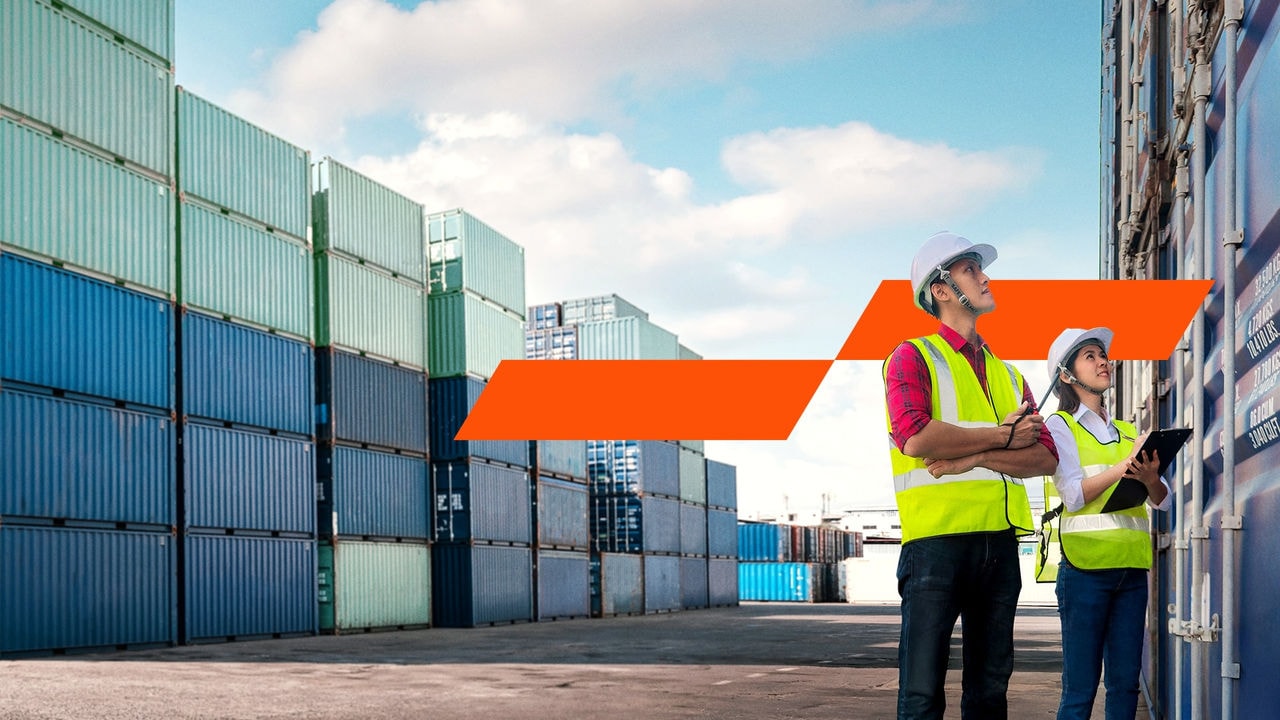Transportation & Logistics

Opportunities and challenges in the shipping and ports industry create the need for appropriate and timely strategic actions. World trade is characterized by challenges as a result of new tonnage being delivered or scheduled to be delivered in the near future but also by opportunities arising from increased demand for transshipment from emerging markets. At the same time in the current environment there are factors different than ever before which increase the uncertainties in the industry; concerns over sovereign debt and its impact on financial institutions, foreign currency fluctuations and their impact on rates and costs, climate change and piracy.
Our practice has grown in line with the industry, supporting our clients through the industry cycles, trends of world trade demand and supply, industry restructurings, regulatory transformation, technological advances and changes in requirements. Our experience and network of dedicate industry practitioners positions PwC Cyprus to provide clients with quality audit and professional services uniquely tailored to the global nature of the shipping & ports industry. PwC Cyprus' service offerings are staffed with highly qualified, experienced and dedicated individuals. We have made a major commitment to training our people in industry specific issues and to assist our clients in facing the challenges of the current environment.

The Challenges
- Financing, mergers & acquisitions - How to make a smart deal
- Meeting International Financial Reporting Standards (IFRS)
- Managing Fraud Risks in the Shipping and Ports Industry
- Managing Tax Risks and facing the challenges of International Taxation
- Manage Tonnage Tax
- Enhancing the Effectiveness of the Finance Function
Financing, mergers & acquisitions - How to make a smart deal
Current economic environment pushes the industry to consolidation and vertical integration and these are driving increased mergers and acquisition activities in both the Shipping and Ports sectors. How do you make a smart deal in the Shipping & Ports industry? First, start with your deal strategy - it has to be flexible enough to adjust for the unexpected, aggressive enough to win highly competitive business terms, and broad enough to envision the challenges that will confront you from the moment the contract is signed. As you move down the path towards reaching agreement on your deal, you will also need access to the right information at the right time. Tax issues, legal risks, conflicts of interest, fluctuations in the shipping and ports markets - all need to be taken into account with each decision you make. However, in a business environment where information can easily overwhelm and confuse, which advisor can help you fashion a deal that works? To start, look for someone with sufficient experience and judgment in M&A in the Spipping & Ports industry. Plenty of patience and stamina is also recommended, as is the capability to add value across the entire deal-making continuum, from strategy through post-deal integration.
How PwC can help you
We offer a full range of tax, financial, business assurance, and advisory capabilities covering acquisitions, disposals, private equity, strategic M&A advice, advice on listed company transactions, financing and public/private partnerships. We're also able to deploy experienced deal teams - combining Shipping and Ports industry knowledge with local market expertise - anywhere and everywhere your company operates. And while every deal is unique in detail, most will benefit from the broad experience we bring in the areas of due dilligence, tax, and, where permitted, legal advice. In short, we offer integrated solutions with deep Shipping and Ports experience precisely matched to your particular deal situation.
Meeting International Financial Reporting Standards (IFRS)
In many countries around the world, companies adapt International Financial Reporting Standards (IFRS) for their group financial statements. The transition to IFRS for listed companies reaches far beyond the territories - such as the EU, Australia and Russia - where their adaption is now mandatory. Clearly, going forward IFRS reporting will be a vital passport to the world's capital markets. Moreover, the transparency and comparability that IFRS provides will come to represent a critical currency in investor relations.
How PwC can help you
Embedding IFRS in the organisation requires more than technical knowledge of the standards themeselves. IFRS will fundamentally change your company's reporting processes and procedures and needs to be integrated into corporate budgeting and forecasting processses. Needs for specific data, software system changes and training of staff will also likely arise. PwC can help. We have a broad range of tools and publications combined with the necessary industry experience to help shipping and ports companies apply IFRS.
Managing Fraud Risks in the Shipping and Ports Industry
Fraud has continued making headlines into the 21st century, yet many executives still believe that "fraud can't happen in my company". But fraud does happen, and often - nearly half (45%) of organisations in the Transportation & Logistics industry report having experienced fraud over the part two years, and the actual incidence of fraud may be even higher, as detection can be difficult. Fraud schemes in Shipping & Ports are manifold. Straightforward examples such as manipulation of financial statements, commerical bribery and cash skimming may occur as in any other industry sector and need to be addressed at the top management level. More specifically, the shipping and ports industry is susceptible to:
- Cargo theft and misappropriation of assets - the most prevalent type of fraud in this industry.
- Revenue leakage - likely to happen if shipping, billing and revenue recognition functions are not linked for all operations.
- Unsupported payments - as shipping companies in a large number of countries with various business cultures, there is an inherent risk of these kinds of payments, which may be in contradiction to laws and regulations.
- Falsifications of shipping and customs papers - leading to shipping companies finding themselves liable for VAT, import duties, excise, even penalties on shipment.
- Carousel fraud, also referred to as the "VAT - merrugo - round" - taking advantage the opportunities for the falsification which arises when goods are shiped across borders.
How PwC can help you
Executives can reduce the risk of serious fraud by fostering a culture of honesty and high ethics, implementing a code of conduct supported by a whistle blowing system, evaluating and improving anti-fraud processes and control activities - as diverse as approvals, authorisations, verifications, reconciliations, segregation of duties, reviews of operating performance and security of assets - and developing an appropriate oversight process. Management should evaluate whether appropriate internal controls have been implemented in any area identified as posing higher risk, as well as controls over the financial reporting process. Controls is the core competence of PwC. Combined with our profound understanding of the industry, we can support Boards of Directors and management in designing and implementing appropriate risk management and control systems. In addition, our risk management and forensic experts, can help you minimise the risk of fraud and deal with it effectively once a case of misconduct is presumed or has occurred.
Managing Tax Risks and facing the challenges of International Taxation
Unfortunately, for a variety of reasons, tax matters are often not dealt within a systematic way. There may be no clear tax strategy in place; any tax objectives or related policies or manuals; or the tax function itself may be poorly organised. As a consequence, tax opportunities may be lost and risks are identified too late. Cyprus tax regime offers many advantages to shipping and port companies both due to the incentives given for shipping companies and to the advantageous double-tax treaties Cyprus enjoys with various countries.
How PwC can help you
Through our shipping and ports industry experience and expertise we can help you realise the best services and solutions to some of the key tax challenges:
- Optimise your worldwide tax position by taking a global view of your business.
- Manage the many company and employee taxation risks associated with cross-border operations and employment.
- Develop a company's global tax strategy and design a tax risk management model.
- Assess tax risks in M&A situations.
- Enhance control of your compliance globally.
- Lower the cost of capital.
Manage Tonnage Tax
In view of the challenges currently faced in the industry favourable tax and other incentives play an important role. The different tax and VAT rates applicable to different types of revenue and profits arising from shipping and shipping related activities can sometimes complicate matters.
How PwC can help you
Cyprus plays a prominent role as a leading Shipping and shipmanagement centre and will continue to strengthen its position in the world economy by maintaining and enhancing its sound maritime infrastructure, favourable tax regime and competitive ship registration and annual tonnage tax rates. The tax incentives combined with the economic and the other advantages provided, including the excellent infrastructure, make Cyprus the ideal choice for shipowners, charteres and shipmanagers (You may visit our publication: "Cyprus Shipping: A sea of opportunities"). We can assist on your decision on the most suitable tonnage tax model plus how and where to locate your shipping activities will depend on the circumstances and your activities. And usually it will be based on a combination of tonnage tax regime, ship financing, freight taxes, wage cost deduction for seafarers and the general tax system. Our PwC network of highly experienced and dedicated shipping experts can assist you in deciding how to structure your shipping business and advice companies with the selection of the most appropriate tonnage tax and other favourable tax regimes.
Enhancing the Effectiveness of the Finance Function
Shipping and Port companies should be looking at building the processes, controls (yield-management) systems and staff capabilities that ultimately help to manage the business better, both now and for the future. Management will rise questions like: How can we get more value from our company's finance function? Does our finance function support our company's business operations? What are the key risks faced by our company - and are we effectively managing those risks? How do we spend less time retrieving and reporting information? Does our company have the appropriate organisation in place to address compliance requirements? Have we got the right person in the right finance role?
How PwC can help you
We work closely with clients to improve the effectiveness and efficiency of their companies' finance operations. Our accounting, organisational and technology skills can help enhance the core transaction processing and reporting competencies of the finance function, while strengthening its ability to support management decision-making and corporate strategy.
Shipping Industry Thought leadership
Transportation & Logistics
Publications & Newsletters
Transportation and logistics
Intelligent logistics so you can keep the world moving
Contact us
Partner, Head of Connected Tax Compliance Managed Services, Chief Learning Officer, Chief Inclusion & Diversity Officer, In charge of Shipping, PwC Cyprus
Tel: +357-25555230





